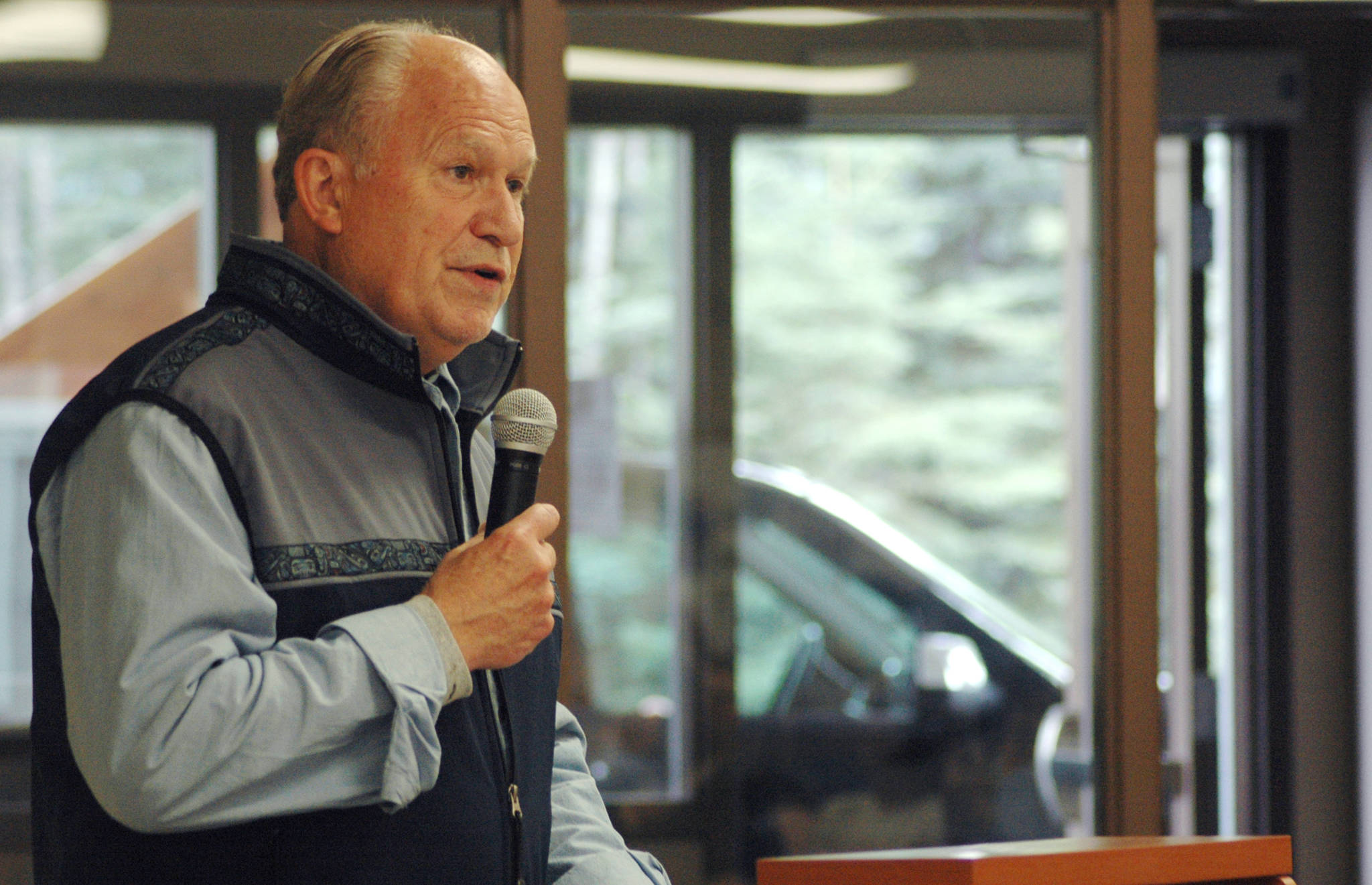Alaskans with disabilities will now have more flexibility in determining their care since Gov. Bill Walker signed Senate Bill 174 into law Saturday.
In a ceremony in Soldotna, Walker signed the bill with dozens of people from Hope Community Resources, the Independent Living Center, Access Alaska and other advocacy and care organizations in attendance. The bill adds language to the legislative findings related to the state’s disability services program, establishing the intent that disability services be person-directed and flexible to individual needs.
The law doesn’t directly change the way people with disabilities receive services right now. Rather, it’s a lens that future policies should be interpreted through, said Patrick Reinhart, the executive director of the Governor’s Council on Disabilities and Special Education.
“We call it aspirational language,” he said. “We had one a few years ago called employment-first, when we spend state money with people with disabilities, we should be asking them what they want to do for a living. It’s not an actual policy thing, it is a policy, it’s telling state workers (to ask) what (people with disabilities) want to do for a living. This is kind of similar in that respect in terms of it being aspirational language.”
Walker signed the bill before a room filled with disability service providers, service recipients, advocates and parents at Hope Community Resources’ building on Kalifornsky Beach Road in Soldotna on Saturday. Sen. Peter Micciche (R-Soldotna), who was the bill’s original sponsor in the Legislature, thanked Walker for the ceremony in Soldotna.
He sponsored the bill after working with advocates and professionals. Reinhart said the language was designed by a group of people with developmental disabilities, service providers and advocates who wanted to make sure that services in the future follow a person-directed model. The recent budget cuts at the state level, including to Medicaid services, did play a role in the discussions, but weren’t the sole impetus, he said. The Alaska Department of Health and Social Services is already fairly person-directed and focused on home- and community-based services, but the new language cements that intent, he said.
“We have a state that has placed a high priority on home and community-based services,” he said. “We’ve had several decades of that. It’s not like we were shifting something majorly, it’s just while we’re here, while we have a group of people who truly believe in this, let’s put it down right in our statutes.”
Micciche said at the ceremony the bill follows the state’s move away from institutionalizing people with disabilities, thus helping to reduce the cost of care and keep people in their communities.
“What we realized is you’re not a number,” he said. “You are Alaskans just like us with the same hopes and dreams. Alaskans with disabilities deserve the opportunity to have active lives.”
He also credited Kenai resident Maggie Winston, who also chairs the Council on Disabilities and Special Education, with much of the work behind the bill. Winston said at the ceremony that she was happy the state took the leadership on this type of care for people with disabilities.
“The language that’s in this bill is going to guide our state and encourage meaningful lives for individuals, for providers, and really strengthen our communities in doing so,” she said.
The final version of the bill states that the Legislature finds that “self-direction and autonomy enhance quality of life” to help people live their lives and that “The people of the state share a vision of a flexible system of support” for people with disabilities to participate actively in managing their support services.
Reinhart said the Council on Disabilities and Special Education would next be taking on the challenge of clearly defining what “person-directed” means, particularly for individuals with limited communication ability or cognitive disabilities, and ensuring a quality workforce to support people in working toward their goals. The state will be evaluating its policies to make sure they fit with the vision statement outlined in the bill, he said.
“(The Division of Senior and Disability Services) is pretty good about wanting person-centered plans, with people developing those plans from the get-go,” he said. “They did do that already, but now they have an overarching philosophy that they can always point to.”

